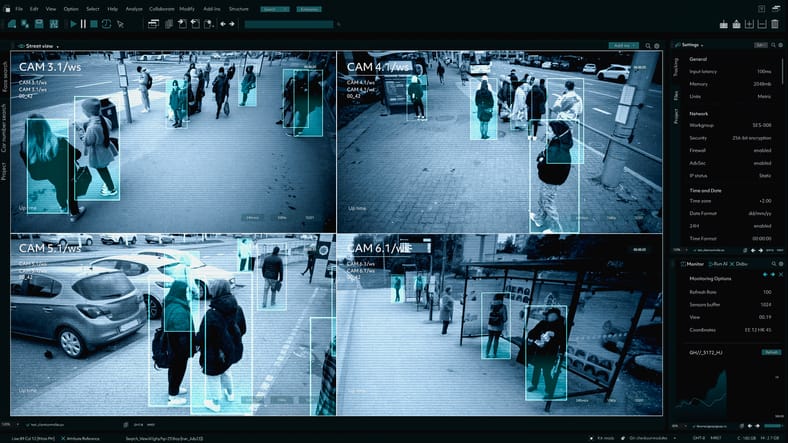
Polish gov’t expands AI surveillance powers
Poland’s Parliament passed new legislation on 24 May expanding the use of artificial intelligence in public surveillance, authorising facial recognition and behavioural tracking tools for use by law enforcement and municipal authorities.
Real-time crowd monitoring, movement analysis
The bill, backed by the ruling Civic Coalition and several allied MPs, permits the deployment of AI systems in public spaces for real-time crowd monitoring, movement analysis and border control.
Poland is one of several Central and Eastern Europe (CEE) countries expanding AI use in public security. Hungary introduced facial recognition systems for border and metro monitoring in 2022. Romania has piloted behavioural analytics at airports. Czechia restricts facial recognition to post-incident forensics and does not permit real-time deployment in public areas.
The Polish Interior Ministry said the changes aim to improve public safety and operational efficiency during major events and in high-traffic areas. The law was passed without provisions requiring judicial review or parliamentary oversight for AI deployment.
With enforcement due to begin by late 2025, rights advocates say the law fails to set clear lines of accountability. The Helsinki Committee added that the legislation introduces unchecked surveillance powers without transparency mechanisms or citizen redress. EDRi, a Brussels-based digital rights group, said the law could conflict with the EU AI Act, which prohibits real-time biometric identification in public spaces under most circumstances.
Opposition MPs criticised the fast-tracked legislative process and the absence of public consultation. Lawmakers from the Left and the Polish People’s Party said the law enables disproportionate surveillance and undermines the country’s data protection regime.
MPs from Civic Platform defended the bill as a targeted public order measure and said future oversight mechanisms could be introduced through secondary regulation.
The legislation may breach national and EU standards
The Polish Data Protection Office has not formally opined on the law. The office previously stated that biometric surveillance should be used only under exceptional circumstances and in line with GDPR requirements. Lawyers at Warsaw University said the legislation may breach national and EU standards unless implementation is subject to strict operational limits.
As of now, Polish Prime Minister Donald Tusk has not made any public statements specifically addressing the recently enacted legislation that expands the government's use of artificial intelligence (AI) in public surveillance.
However, Tusk has previously expressed concerns regarding the misuse of surveillance technologies. In February 2024, he revealed that the previous administration had illegally deployed Pegasus spyware against a "very long" list of targets, describing it as a significant violation of constitutional standards.
Additionally, Tusk has emphasised the importance of cybersecurity and AI in Poland's national strategy. In February 2025, he announced a partnership with Google to develop AI applications in energy and cybersecurity sectors, aiming to enhance Poland's digital infrastructure and security.





